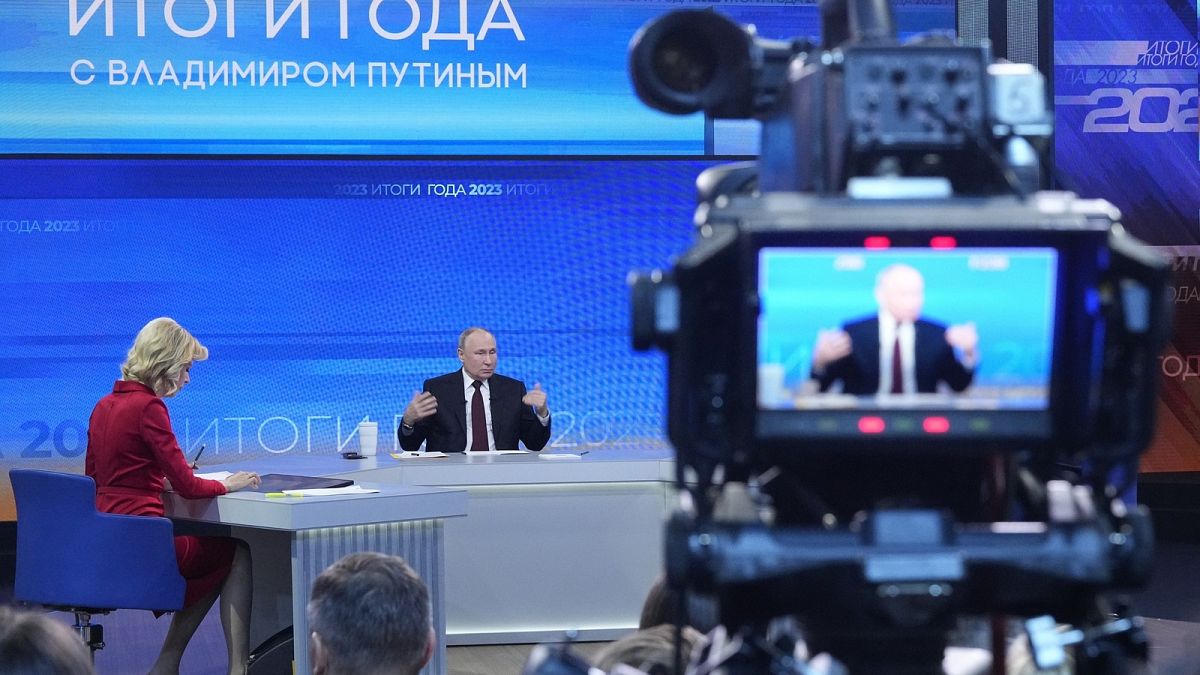The European Union recently announced a ban on four media outlets accused of spreading pro-Kremlin propaganda and destabilizing Ukraine’s neighboring countries. The outlets include Voice of Europe, RIA Novosti, Izvestia, and Rossiyskaya Gazeta, all of which are under the direct or indirect control of Russia. The European Council stated that these outlets have been instrumental in fostering support for Russia’s illegal invasion of Ukraine and its strategy of destabilizing neighboring countries and EU member states. This decision comes as the EU prepares for upcoming European elections, amid concerns of Russian-backed disinformation campaigns.
The EU’s decision to ban the four blacklisted media outlets was in response to Russia’s systematic international campaign of media and information manipulation. Russia has used these outlets to justify its aggression against Ukraine and enhance its destabilization strategy in neighboring countries. The bloc has also expressed concerns about Russian funding of media outlets, NGOs, and political parties in the EU. With the European elections approaching, there is a fear that the vote could be vulnerable to Russian-backed disinformation campaigns, prompting the EU to be on high alert for foreign interference.
Three of the blacklisted media outlets, RIA Novosti, Izvestia, and Rossiyskaya Gazeta, are partially owned or controlled by the Russian state. However, Voice of Europe, a Dutch-listed company, has its official headquarters in the Netherlands. This outlet has been at the center of an investigation into allegations of lawmakers across Europe being paid to promote Kremlin propaganda. Czech authorities uncovered a Russian influence operation conducted through Voice of Europe, accusing elected officials in the European Parliament and national parliaments of receiving financial transactions. German police have also opened an investigation into allegations against EU election hopeful Petr Bystron of the far-right Alternative for Germany (AfD) party.
Czech Prime Minister Petr Fiala revealed that the uncovered operation aimed to destabilize Europe as a whole and has prompted other European countries to initiate investigations. Belgian authorities have confirmed that they have opened a judicial investigation into members of the European Parliament who are suspected of being involved. The EU is deeply concerned about the impact of disinformation campaigns on the upcoming European elections, with fears that Russian interference could undermine the integrity of the vote. This ban on Russian propaganda outlets is seen as a necessary step to counter foreign interference and protect the democratic process in the EU.
The European Council’s decision to blacklist the four media outlets accused of spreading pro-Kremlin propaganda is part of a broader effort to counter Russia’s influence operations and disinformation campaigns. The outlets, Voice of Europe, RIA Novosti, Izvestia, and Rossiyskaya Gazeta, have been identified as tools used by Russia to justify its aggression against Ukraine and destabilize neighboring countries and EU member states. The EU is also taking action to prevent Russian funding of media outlets, NGOs, and political parties within its borders, as part of a strategy to protect the integrity of democratic processes in Europe.
With the European elections fast approaching, the EU is on high alert for Russian-backed disinformation campaigns that could compromise the integrity of the vote. Concerns about foreign interference in the upcoming elections have led the EU to take proactive measures, such as banning Russian propaganda outlets and investigating allegations of politicians being paid to promote Kremlin propaganda. The bloc’s response to these threats reflects a commitment to safeguarding democratic values and protecting the sovereignty of its member states from external manipulation. By identifying and targeting sources of foreign influence, the EU aims to ensure fair and transparent elections that reflect the will of the European people.











